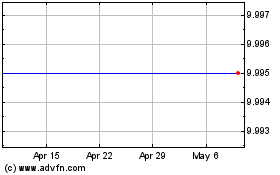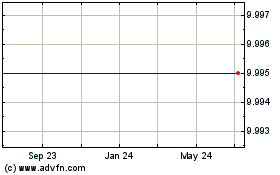Apollo Group: Focus On Associate's Degrees Hurt Other Programs
May 13 2010 - 12:55PM
Dow Jones News
Apollo Group Inc. (APOL) is reviewing its growth plans for its
associate's degree, saying the program diverted resources from
other education offerings and hasn't performed as well as
expected.
"I wouldn't say it was a mistake," Gregory Cappelli, co-chief
executive of Apollo and chairman of Apollo Global, the company's
international arm, told Dow Jones Newswires Thursday. "Probably it
ended up taking a great deal more of the resources of the team to
work with the associate's program. Probably we had to put a
disproportionate amount of focus in this area."
Cappelli said growth in the bachelor's, master's and doctoral
programs fell below internal goals as Apollo expanded into
entry-level degrees, an initiative that began in 2004.
Forty-four percent of the 458,600 University of Phoenix students
were in associate's degree programs in the most recent quarter, up
from 20% in 2006.
Apollo last fall announced a pilot orientation program to help
weed out students who likely wouldn't succeed at the associate's
program. The school pays for the three-week program, which covers
topics such as time management and navigating the school's library
and is conducted at both the online school and at bricks-and-mortar
campuses.
Cappelli said the company is "getting the results we were
looking for" and plans to roll it out on a wider scale, potentially
for all students wishing to enter with fewer than 24 credits, or
the equivalent of one year of college experience.
Siphoning off students means Apollo's enrollment growth will
slow and frustrate some investors. However, Cappelli said it is
worth the cost, adding that the long-term benefits will outweigh
short-term enrollment losses.
He defended the company's role in American higher education,
saying it shouldn't be lumped in with the "job shops" recently
targeted in a "Frontline" documentary on PBS and by the Department
of Education for inappropriate business practices.
"You can't force a bad product on consumers for 40 years,"
Cappelli said, adding that students "vote with their feet" and
University of Phoenix wouldn't have grown so much if it didn't
provide legitimate education.
He noted that Apollo doesn't acquire new schools just to get
coveted regional accreditation, a practice that is becoming more
popular in the industry as struggling small schools need financing
and some for-profit institutions look for more regulatory
legitimacy. Regional accreditation is considered more elite than
national accreditation, with schools including Harvard and Stanford
holding such status.
Still, Cappelli said Apollo will be affected by potential rule
changes making their way through the Department of Education. The
company's schools may need to cut back on some nursing, teaching
and law-enforcement classes if one regulation, a draft of which is
expected later this spring, goes into effect. That rule proposes a
cap on the ratio of debt to income with which students can
graduate, an attempt at tying college courses to so-called gainful
employment.
-By Melissa Korn, Dow Jones Newswires; 212-416-2271,
melissa.korn@dowjones.com
Apollo Education Group, Inc. (NASDAQ:APOL)
Historical Stock Chart
From Aug 2024 to Sep 2024

Apollo Education Group, Inc. (NASDAQ:APOL)
Historical Stock Chart
From Sep 2023 to Sep 2024
